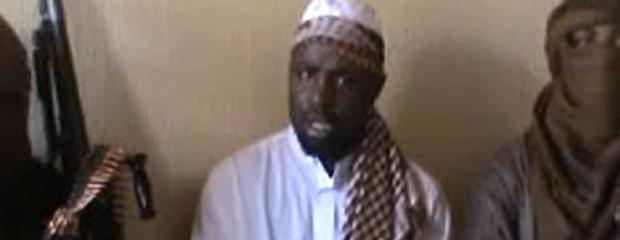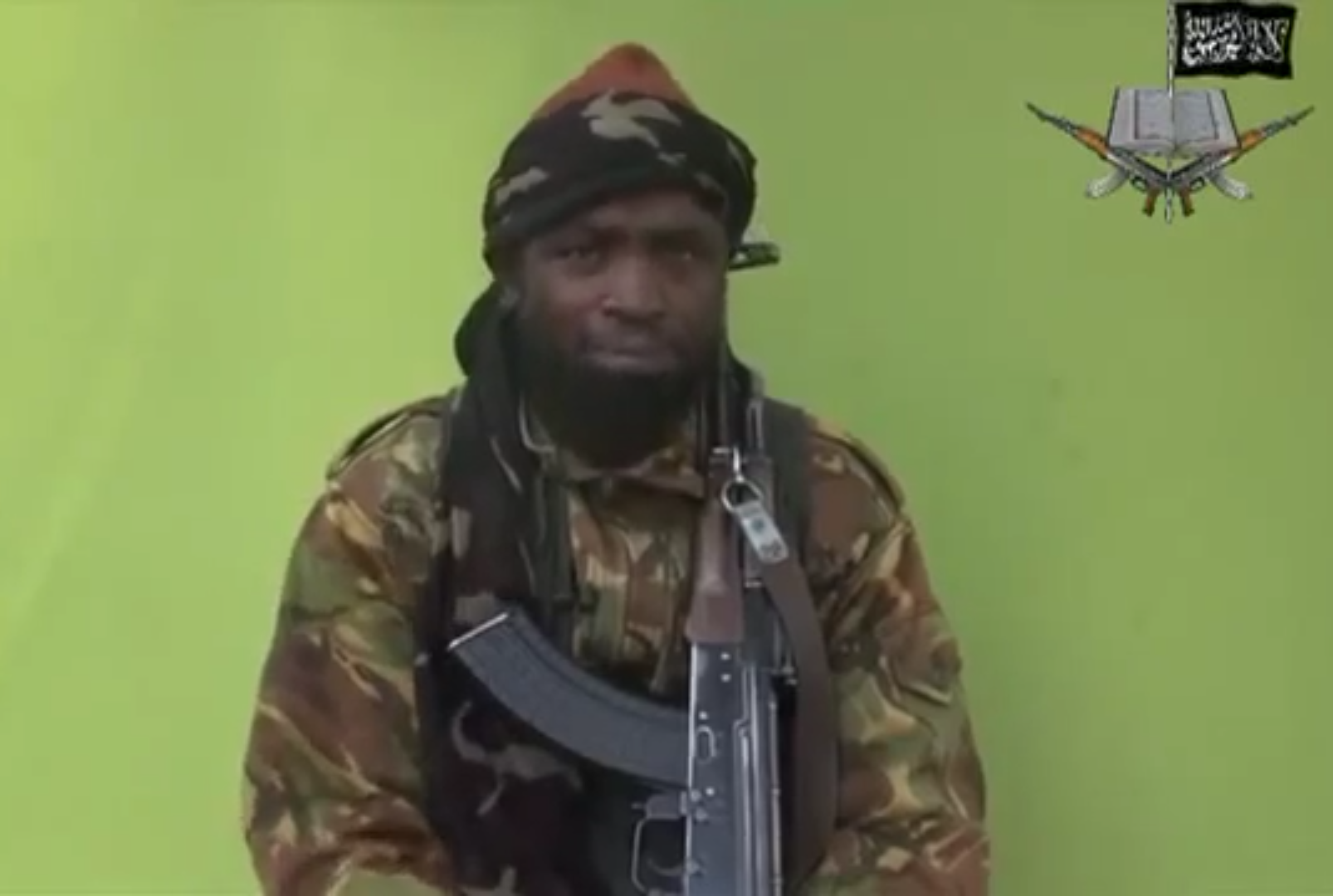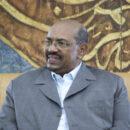Boko Haram and the many faces of Abubakar Shekau – By Jacob Zenn

On September 24, 2014, Nigerian and Cameroonian sources provided video evidence (6:24) that a Boko Haram commander named Bashir Muhammed, who “˜doubled’ as the group’s leader Abubakar Shekau, was killed in Konduga in Borno State. This prompts the question: Where is the real Shekau? There are several credible theories about Shekau’s whereabouts (and whether he is even still alive) and what the impact of this imposter’s death may be for Nigerian security ahead of its presidential elections in February 2015.
Explaining the Shekaus
It remains possible that the Nigerian security forces were correct when they claimed to have killed Shekau in July 2009 along with 1,000 other Boko Haram members, including founder Muhammed Yusuf and key financier Alhaji Buji Foi. When a heavier-looking Shekau re-emerged in a video in July 2010, the security forces claimed the image was “digitally manipulated.” The Shekau of July 2010, as well subsequent commanders claiming to be him in Boko Haram videos since then, may have been several people (including Bashir Muhammed.) In other words, the real Shekau may have been dead since July 2009 but because, unlike Muhammed Yusuf’s death, this was never proven with video or photographic evidence, Boko Haram was able to “˜duplicate’ him.
Another possibility is that Shekau survived the July 2009 crackdown and appeared alongside several imposters until July 2013, when he was killed in Amchide, Cameroon by defectors from his ranks or the security forces. Since July 2013 several imposters, including Bashir Muhammed, could have appeared as “˜Shekau’. However, UAE-based Nigerian journalist Ahmed Salkida now claims that Shekau is still alive along with one or two other imposters, except, of course, Bashir Muhammed. Future Boko Haram videos will likely provide more insight on whether Shekau is dead or alive or if there is a successor.
A second question that arises is why Boko Haram would decide to feature several Shekaus? One possibility is that this leadership structure was learned or appropriated from Niger Delta militants. Their spokesperson, Jomo Ngomo, represented several commanders who all used the name “˜Jomo Ngomo’ to communicate with the press, so that when one commander was arrested the others could take over under one voice. Similarly, when Boko Haram spokesperson, Abu Qaqa defected and was arrested in 2012, other Abu Qaqas emerged, who were then known as Abu Qaqa II and Abu Qaqa III.
This “˜revolving’ leadership structure may also have been taught to Boko Haram by leaders from its Ansaru faction. Ansaru was led by Nigerian al-Qaeda in the Islamic Maghreb (AQIM) members and targeted foreigners for kidnapping and Nigerian soldiers in northwest Nigeria in 2012 and 2013. In fact, one of the first probable Shekau imposters appeared in a split-screen video of “˜Shekau’ and seven French hostages in Cameroon in what was very likely an Ansaru-led attack. Some Ansaru cells reintegrated with Boko Haram in northeastern Nigeria in 2013 and seem to have multiplied the “˜Shekaus’ in operation.
The existence of several Shekaus has made it more difficult for the security forces to gain the morale boosting victory of “˜decapitating’ Boko Haram’s leadership, while making it also more difficult for foreign governments like the US and UK to confirm the location of Shekau, who is a designated terrorist.
Bashir Muhammed is Dead, What’s Next?
Now that Bashir Muhammed is dead, what are the opportunities for the Nigerian security forces? First and foremost, the death may allow the security forces to exploit Boko Haram’s factionalization and negotiate with its different constituent parts. The existence of multiple Shekaus suggests that there are several Boko Haram factions that have had a mutual understanding with each other. Otherwise, one of the Shekaus would have released a video declaring the others Shekaus as fakes.
This has not happened. It has only been commanders who have fallen out with Shekau who have gone public and said there were fake Shekaus prior to Bashir Muhammed’s death. These commanders tend to favour some form of negotiation with the Nigerian government for the release of Boko Haram prisoners and compensation for the families of victims of the July 2009 clashes. The elimination of Bashir Muhammed may strengthen these commanders, thus providing an opportunity for the government to test negotiations through back channels, probably involving religious leaders.
It also appears that some of Bashir Muhammed’s fighters were disloyal to him and told him that Konduga was safe for travel while secretly setting him up for the ambush that killed him. These fighters may now join another Boko Haram faction, such as Ansaru, which claims to be more “˜humane‘ than Boko Haram – criticizing Boko Haram’s killing of Muslim civilians. But if the government and civil society groups act quickly enough they may be able to reintegrate some of these informers into society through educational and employment programs before they consider re-engaging militancy under any faction.
One reason for growing disloyalty in Bashir Muhammed’s faction may be related to forcible recruitment. Under Muhammed Yusuf and during the first year after Shekau declared “˜jihad’ against Nigeria in 2010, Boko Haram had some support from the local population in Borno State. Their followers sympathized with Yusuf’s call for a “˜pure’ Islamic State that he believed would eliminate the corruption, poverty, and impunity of Nigerian society.
In 2010 and 2011 Boko Haram focused mostly on targeting politicians and religious leaders, who some followers viewed as corrupt. But when Boko Haram started massacring civilians and carrying out suicide bombings at churches and markets in 2012, it lost some popular support and in 2013 began forcibly recruiting young men as foot soldiers. Most notoriously, it also began kidnapping women to use as scouts, cooks, porters and sex slaves. These types of forcible recruits may be more likely to leave Boko Haram and offer the sort of intelligence that the security forces need to locate the group’s hideouts and undermine its domestic, regional and international networks.
Conclusion
There have been few points of optimism recently in the Nigerian security landscape. But the death of Bashir Muhammed does present opportunities. The Nigerian government and security forces have precious little time before elections in February 2015 to right the ship in the country (especially Borno State) so polls can be held there. As a result, all efforts should be taken to see whether there are now some factions willing to negotiate a ceasefire and members willing to leave militancy altogether, provide intelligence on Boko Haram to prevent future attacks, and rejoin society through programs that the government and civil society should immediately create.
Jacob Zenn is an analyst of African Affairs and author of “Northern Nigeria’s Boko Haram: The Prize in al-Qaeda’s Africa Strategy,” which was published by The Jamestown Foundation.








Jacob, excellent piece here. Couple of questions: if Shekau is dead why would Boko Haram continue to elect new Shekaus… Wouldn’t Mamman Nur or Khalid al-Barnawi want to take over leadership of the group? Maybe this means the real Shekau is still alive? Perhaps Nur and Barnawi are content leading there own factions of the group? or are they using the “many faces of Shekau” as a method of keeping Nigerian forces occupied with their decapitation campaign, while they are pulling the real strings behind the group?
Thanks Scott,
Given your reasoning yes Shekau may therefore be alive. But note Barnawi may have reintgrated w BH and Shekau but is still probably part of his own AQIM/Ansaru faction which may have left the Nigerian front after teaching what was needed. Nur I suspect is separate from the main BH factions, too, and I have written he may be a leader using the pseudonym Muhammed Marwa (see my CTC Sentinel piece from May 2014). I do think Barnawi and Nur may be using Shekaus to present the heads of their groups too, esp in the Moulin Fournier kidnapping. You are right about the logic of the ‘decap campaign’.. Good thinking on all fronts, all possible there… JZ
On the Trail of “Bashir Mohammed”
by Kirk Ross
According to Nigerian press reports, the credibility of which you may judge for yourself, suspected Boko Haram militant “Bashir Mohammed” was arrested by Nigerian security forces “in 2009, after a violent attack which led to the death[s] of over 900 people and [the] destruction of property worth millions of naira” (Ibrahim, 2011). Mohammed was implicated along with nearly eighty other suspects in the “killing of 21 policemen, other security agents, innocent citizens and setting ablaze police stations, government buildings, churches, among others.” On April 26, 2010, after an unnamed resident of Maiduguri posted bail in the amount of N100,000 (about 600 bucks), and having been apprised of his upcoming trial date, Bashir Mohammed walked (Dauda, 2010). Then, interestingly enough, Bashir Mohammed disappeared. Damo Ayuba, an attorney representing Bashir Mohammed, in September 2011 told court officials that his client, “who had earlier been granted bail, had been re-arrested by men of the JTF [Joint Task Force] and taken to [an] unknown destination” (Mbaya, 2011). The date of this re-arrest was not given. In any case, all efforts to locate Bashir Mohammed, who was only one among two dozen “missing” Boko Haram suspects believed to be in the custody of the JTF, had proven futile, said Ayuba. The next time the name “Bashir Mohammed” appears in print it is associated with the Christmas 2011 bombing of St. Theresa’s Catholic Church at Madalla, Niger State which resulted in the deaths of at least 44 people and the wounding of some 75 others. In a written statement provided to the court, the man convicted for the crime, Kabiru Sakoto, stated that, under his direction, “the Madalla church bombing was carried out by one Bashir Mohammed, Muhktar Kafanchan and others” whose names he could not then remember (Nnochiri, 2013). Security forces said they were working diligently to apprehend Mohammed and the others responsible. Then, the next time—the last time??—we hear about “Bashir Mohammed, he’s sprawled out dead on a Konduga battlefield.
Questions:
So, maybe there are dozens of Boko Haram militants named Bashir Mohammed? After all, when the wind blows in that direction, no one, it seems, has any trouble believing there are several Shekaus. But let us, for a moment at least, assume there is only one of each. While Mr. Shekau has been out running amok, where has Bashir been hiding. Oh, that’s right! He’s been in the custody of the Joint Task Force. After all, when those guys put someone in the deep dark, they do not simply walk out of their on volition. So, did the JTF just toss this guy out of his cell, shoot him a few times, and then broadcast: “Look, we’re actually making progress against the insurgency! . . . We killed Shekau! . . . Only Shekau is really the notorious Bashir Mohammed! Look! ????” And remember, folks, this is the same Nigerian security apparatus which claimed they had freed the Chibok schoolgirls only to later admit that, no, they really hadn’t.
And, nevertheless, everyone just eats it up. And I mean everyone. And why? Is the impulse to stay out in front of the story that strong??
And, so, this afternoon, according to a video presented to AFP, Shekau is alive, and flipping everyone the bird. What will the prognosticators have to say now?? I mean, should we now address Mr. Shekau as “Bashir Mohammed” even though he’s no longer dead?
Sources
Dauda, S. (2010, May 5). Nigeria: More Boko Haram suspects get bail. Daily Trust. Retrieved from http://allafrica.com/stories/201005050398.html.
Ibrahim, Y. (2011, September 16). Nigeria: Court summons comptroller of prisons over missing Boko Haram suspects. Daily Trust. Retrieved from http://allafrica.com/stories/201109190402.html.
Mbaya, D. (2011, September 16). Nigeria: Boko Haram – court summons prison controller over missing suspects. Leadership. Retrieved from http://allafrica.com/stories/201109160734.html.
Nnochiri, I. (2013, December 21) Nigeria: Catholic church bombing – court sentences ‘Kabiru Sokoto’ to life imprisonment. Vanguard. Retrieved from http://allafrica.com/stories/201312210178.html.